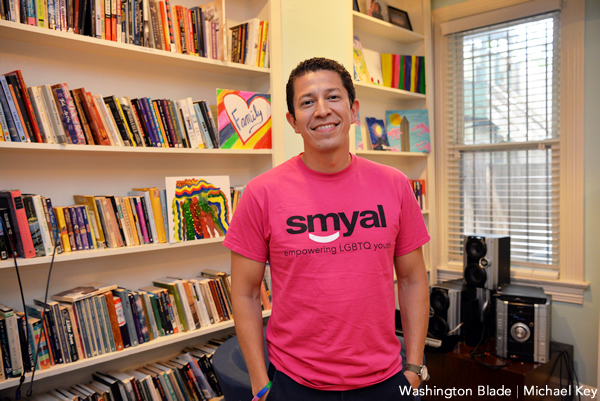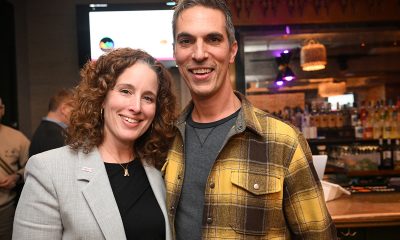Arts & Entertainment
SPOTLIGHTING LGBT HOMELESSNESS: SMYAL’s 18-month shelter program houses LGBT youth
Housing hub inspired by alarming 2015 D.C. study
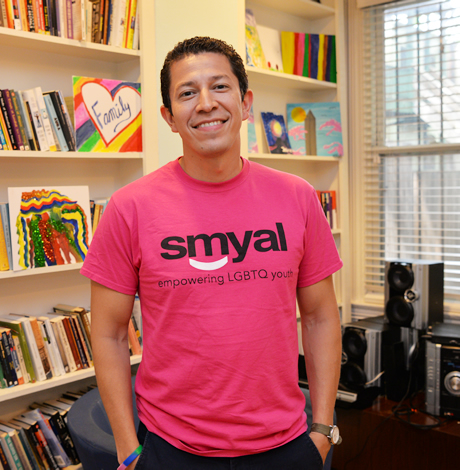
This story is part of our contribution to the 2018 #DCHomelessCrisis news blitz. Local media outlets will be reporting and discussing stories about ending homelessness in the nation’s capital all day. The collaborative body of work is cataloged at dchomelesscrisis.press.
Chris Lewis aspires to be a beauty influencer on YouTube with millions of subscribers. Although there are few beauty gurus who are men of color, Lewis is ready to pioneer a beauty movement with SMYAL’s transitional housing program serving as a stepping stone for his goals.
The 25-year-old was born in Queens, N.Y., and later raised in the D.C. area. Lewis, who identifies as gay, says he was facing “extreme homelessness to the point where I was sleeping out on the street and in parks and sometimes from couch to couch.”
Lewis found housing with the Wanda Alston Foundation, D.C.’s first transitional house for homeless LGBT youth which opened in 2008. After graduating from the program, Lewis moved into SMYAL’s transitional house in November.
SMYAL’s transitional housing program opened in January 2017 in response to D.C.’s 2015 Homeless Youth Census, which states that 43 percent of homeless youth identify as LGBT.
The facility can accommodate 12 residents at a time for SMYAL’s 18-month program. Since its opening, 13 residents have been housed.
Residents are referred to the program through social workers, doctors, therapists, school personnel or through another agency. Once referred, potential residents come in for interviews and assessments. If the resident is accepted, they receive a welcome kit with toiletries, sheets and towels. Transportation is paid for and Safeway gift cards are distributed for residents to buy their own groceries and cook their own meals.
Director of Youth Housing Jorge Membreño, a program assistant, a case manager or another member of staff is on site anytime between 8 a.m.-6 p.m. The program offers case management for the development of a personal action plan and weekly check-in meetings. Supportive services are offered including medical care, mental health services and self-care support. Residents also learn skills pertaining to job hunting, apartment hunting, finding programs to get food stamps and more. There are also community outings and LGBT youth networking opportunities.
Membreño says there hasn’t been any major behavioral issues so far in the program.
After residents leave the program staff follows up with them for one year through text, email or a phone call at least once a week.
The annual operating budget is funded completely by the D.C. Department of Human Services.
The program is designed for LGBT residents but Membreño says the program doesn’t screen potential residents based on their sexuality. He trusts that LGBT residents looking for a safe place to express themselves will be drawn to the program because they can safely be themselves. Membreño says many of their residents have recounted stories of staying at shelters and having to hide their gender expression or sexuality to be safe.
According to Membreño, LGBT homeless numbers are similar in D.C. compared to other major cities such as New York City and Chicago. However, Membreño thinks the factors for LGBT homelessness are not widely known to the public.
“The one you hear the most is when a family ostracized someone,” Membreño says. “Something we don’t talk about a lot is parental incarceration, low parental involvement, family homelessness. There are different factors that contribute to LGBT homelessness other than just the ostracization.”
Membreño identifies as straight but LGBT homelessness is close to his heart. He started his career as a social worker for the LGBT community and eventually found himself working in homelessness as a school social worker. He also is a licensed therapist and decided to incorporate the world of therapy and social work together.
“The more and more I got involved with it and the more I worked with LGBTQ-identifying youth I decided to merge the two into two passions I loved working with and then being able to focus my attention within the city to make sure that our youth had access to equitable housing and that D.C. was really paying attention,” Membreño says.
Lewis is also realizing his dreams through SMYAL’s transitional housing program. He cites YouTubers Jackie Aina, Jeffree Star and Manny MUA as inspirations for his career. He also credits a friend who died for getting him interested in makeup.
“I want to be in a space where I can create a studio with all my makeup and really reach out to people who are like me, men of color, who want to become a beauty influencer and create a brand that is all-inclusive for everybody,” Lewis says.
In a place like SMYAL’s traditional housing program Lewis’ goals are encouraged in a way that may not be as accepted in a non-LGBT program.
“Having a place where you can identify with the people you’re with also helps create a level of safety, family and community that you might not find in other residential or transitional living centers,” Membreño says.
For more information on SMYAL’s transitional housing program, visit smyal.org.
Movies
Radical reframing highlights the ‘Wuthering’ highs and lows of a classic
Emerald Fennell’s cinematic vision elicits strong reactions

If you’re a fan of “Wuthering Heights” — Emily Brontë’s oft-filmed 1847 novel about a doomed romance on the Yorkshire moors — it’s a given you’re going to have opinions about any new adaptation that comes along, but in the case of filmmaker Emerald Fennell’s new cinematic vision of this venerable classic, they’re probably going to be strong ones.
It’s nothing new, really. Brontë’s book has elicited controversy since its first publication, when it sparked outrage among Victorian readers over its tragic tale of thwarted lovers locked into an obsessive quest for revenge against each other, and continuing to shock generations of readers with its depictions of emotional cruelty and violent abuse, its dysfunctional relationships, and its grim portrait of a deeply-embedded class structure which perpetuates misery at every level of the social hierarchy.
It’s no wonder, then, that Fennell’s adaptation — a true “fangirl” appreciation project distinguished by the radical sensibilities which the third-time director brings to the mix — has become a flash point for social commentators whose main exposure to the tale has been flavored by decades of watered-down, romanticized “reinventions,” almost all of which omit large portions of the novel to selectively shape what’s left into a period tearjerker about star-crossed love, often distancing themselves from the raw emotional core of the story by adhering to generic tropes of “gothic romance” and rarely doing justice to the complexity of its characters — or, for that matter, its author’s more complex intentions.
Fennell’s version doesn’t exactly break that pattern; she, too, elides much of the novel’s sprawling plot to focus on the twisted entanglement between Catherine Earnshaw (Margot Robbie), daughter of the now-impoverished master of the titular estate (Martin Clunes), and Heathcliff (Jacob Elordi), a lowborn child of unknown background origin that has been “adopted” by her father as a servant in the household. Both subjected to the whims of the elder Earnshaw’s violent temper, they form a bond of mutual support in childhood which evolves, as they come of age, into something more; yet regardless of her feelings for him, Cathy — whose future status and security are at risk — chooses to marry Edgar Linton (Shazad Latif), the financially secure new owner of a neighboring estate. Heathcliff, devastated by her betrayal, leaves for parts unknown, only to return a few years later, with a mysteriously-obtained fortune. Imposing himself into Cathy’s comfortable-but-joyless matrimony, he rekindles their now-forbidden passion and they become entwined in a torrid affair — even as he openly courts Linton’s naive ward Isabella (Alison Oliver) and plots to destroy the entire household from within. One might almost say that these two are the poster couple for the relationship status “it’s complicated.” and it’s probably needless to say things don’t go well for anybody involved.
While there is more than enough material in “Wuthering Heights” that might easily be labeled as “problematic” in our contemporary judgments — like the fact that it’s a love story between two childhood friends, essentially raised as siblings, which becomes codependent and poisons every other relationship in their lives — the controversy over Fennell’s version has coalesced less around the content than her casting choices. When the project was announced, she drew criticism over the decision to cast Robbie (who also produced the film) opposite the younger Elordi. In the end, the casting works — though the age gap might be mildly distracting for some, both actors deliver superb performances, and the chemistry they exude soon renders it irrelevant.
Another controversy, however, is less easily dispelled. Though we never learn his true ethnic background, Brontë’s original text describes Heathcliff as having the appearance of “a dark-skinned gipsy” with “black fire” in his eyes; the character has typically been played by distinctly “Anglo” men, and consequently, many modern observers have expressed disappointment (and in some cases, full-blown outrage) over Fennel’s choice to use Elordi instead of putting an actor of color for the part, especially given the contemporary filter which she clearly chose for her interpretation for the novel.
In fact, it’s that modernized perspective — a view of history informed by social criticism, economic politics, feminist insight, and a sexual candor that would have shocked the prim Victorian readers of Brontë’s novel — that turns Fennell’s visually striking adaptation into more than just a comfortably romanticized period costume drama. From her very opening scene — a public hanging in the village where the death throes of the dangling body elicit lurid glee from the eagerly-gathered crowd — she makes it oppressively clear that the 18th-century was not a pleasant time to live; the brutality of the era is a primal force in her vision of the story, from the harrowing abuse that forges its lovers’ codependent bond, to the rigidly maintained class structure that compels even those in the higher echelons — especially women — into a kind of slavery to the system, to the inequities that fuel disloyalty among the vulnerable simply to preserve their own tenuous place in the hierarchy. It’s a battle for survival, if not of the fittest then of the most ruthless.
At the same time, she applies a distinctly 21st-century attitude of “sex-positivity” to evoke the appeal of carnality, not just for its own sake but as a taste of freedom; she even uses it to reframe Heathcliff’s cruel torment of Isabella by implying a consensual dom/sub relationship between them, offering a fragment of agency to a character typically relegated to the role of victim. Most crucially, of course, it permits Fennell to openly depict the sexuality of Cathy and Heathcliff as an experience of transgressive joy — albeit a tormented one — made perhaps even more irresistible (for them and for us) by the sense of rebellion that comes along with it.
Finally, while this “Wuthering Heights” may not have been the one to finally allow Heathcliff’s racial identity to come to the forefront, Fennell does employ some “color-blind” casting — Latif is mixed-race (white and Pakistani) and Hong Chau, understated but profound in the crucial role of Nelly, Cathy’s longtime “paid companion,” is of Vietnamese descent — to illuminate the added pressures of being an “other” in a world weighted in favor of sameness.
Does all this contemporary hindsight into the fabric of Brontë’s epic novel make for a quintessential “Wuthering Heights?” Even allowing that such a thing were possible, probably not. While it presents a stylishly crafted and thrillingly cinematic take on this complex classic, richly enhanced by a superb and adventurous cast, it’s not likely to satisfy anyone looking for a faithful rendition, nor does it reveal a new angle from which the “romance” at its center looks anything other than toxic — indeed, it almost fetishizes the dysfunction. Even without the complex debate around Heathcliff’s racial identity, there’s plenty here to prompt purists and revisionists alike to find fault with Fennell’s approach.
Yet for those looking for a new window into to this perennial classic, and who are comfortable with the radical flourish for which Fennell is already known, it’s an engrossing and intellectually stimulating exploration of this iconic story in a new way — and for cinema fans, that’s more than enough reason to give “Wuthering Heights” a chance.

Crimsyn and Tatianna hosted the new weekly drag show Clash at Trade (1410 14th Street, N.W.) on Feb. 14, 2026. Performers included Aave, Crimsyn, Desiree Dik, and Tatianna.
(Washington Blade photos by Michael Key)
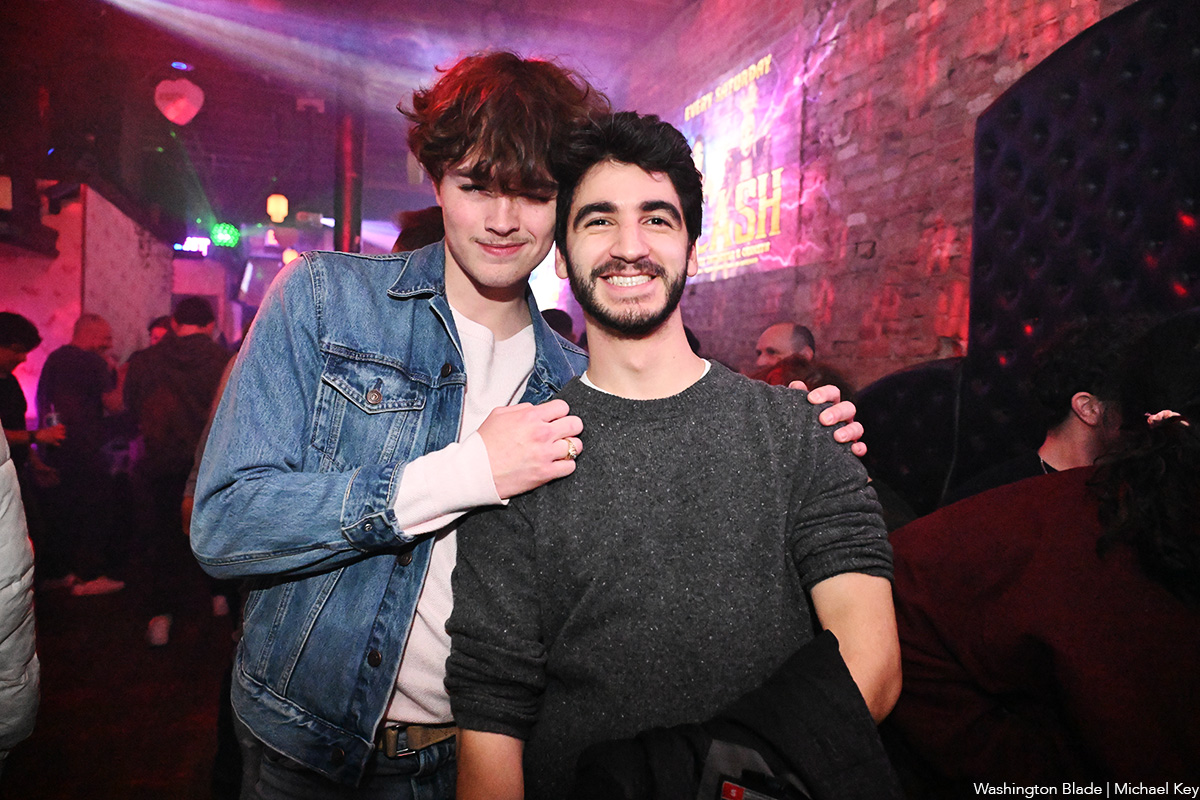

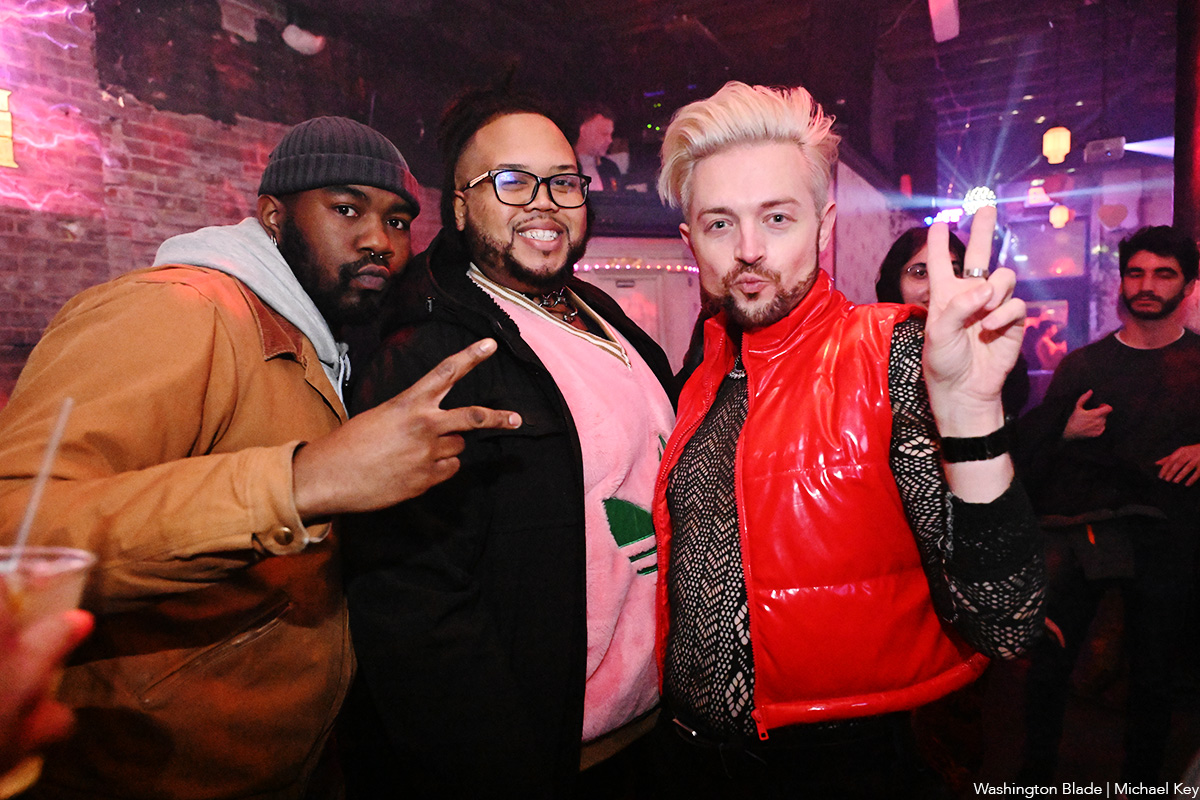



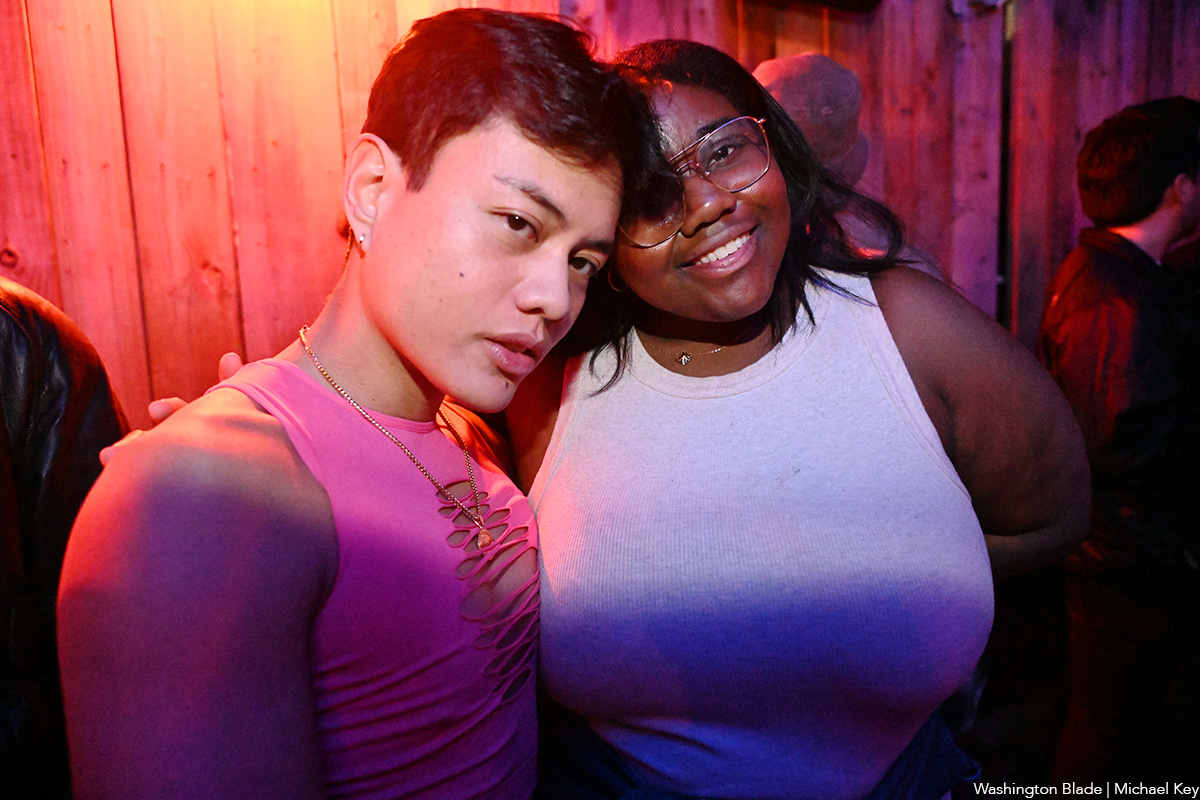
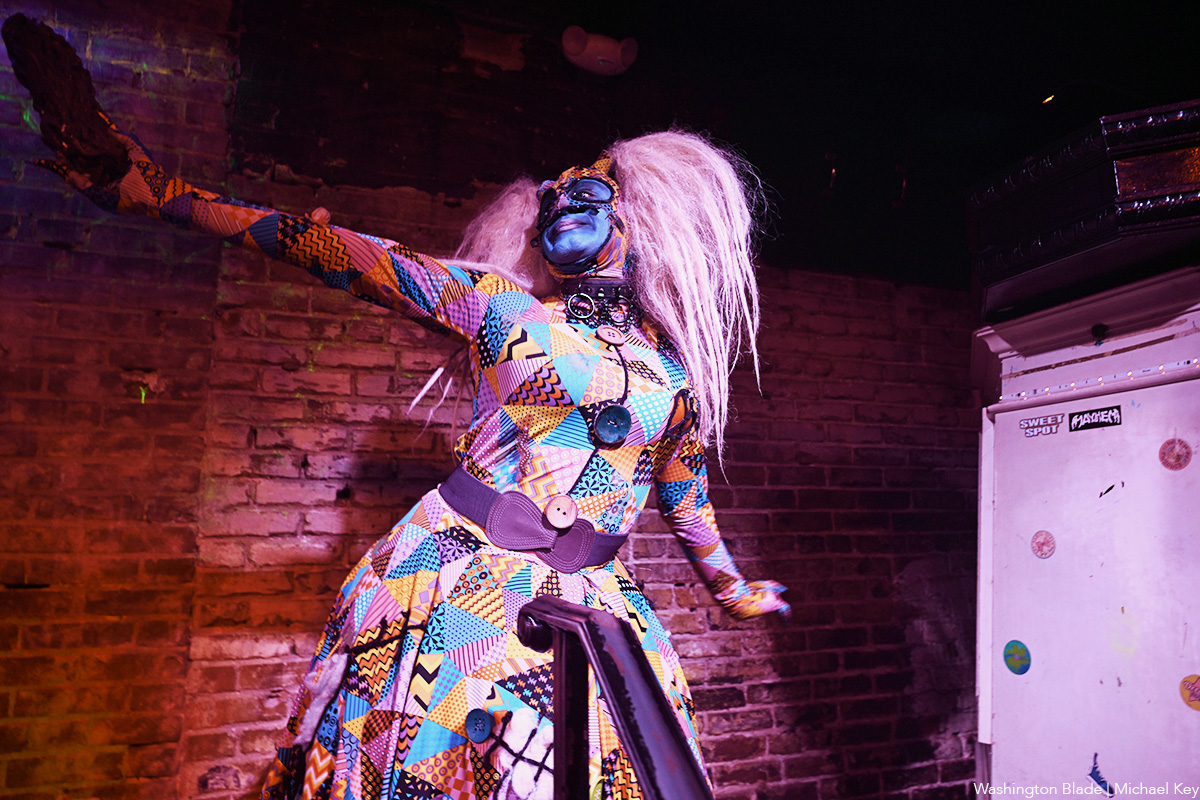
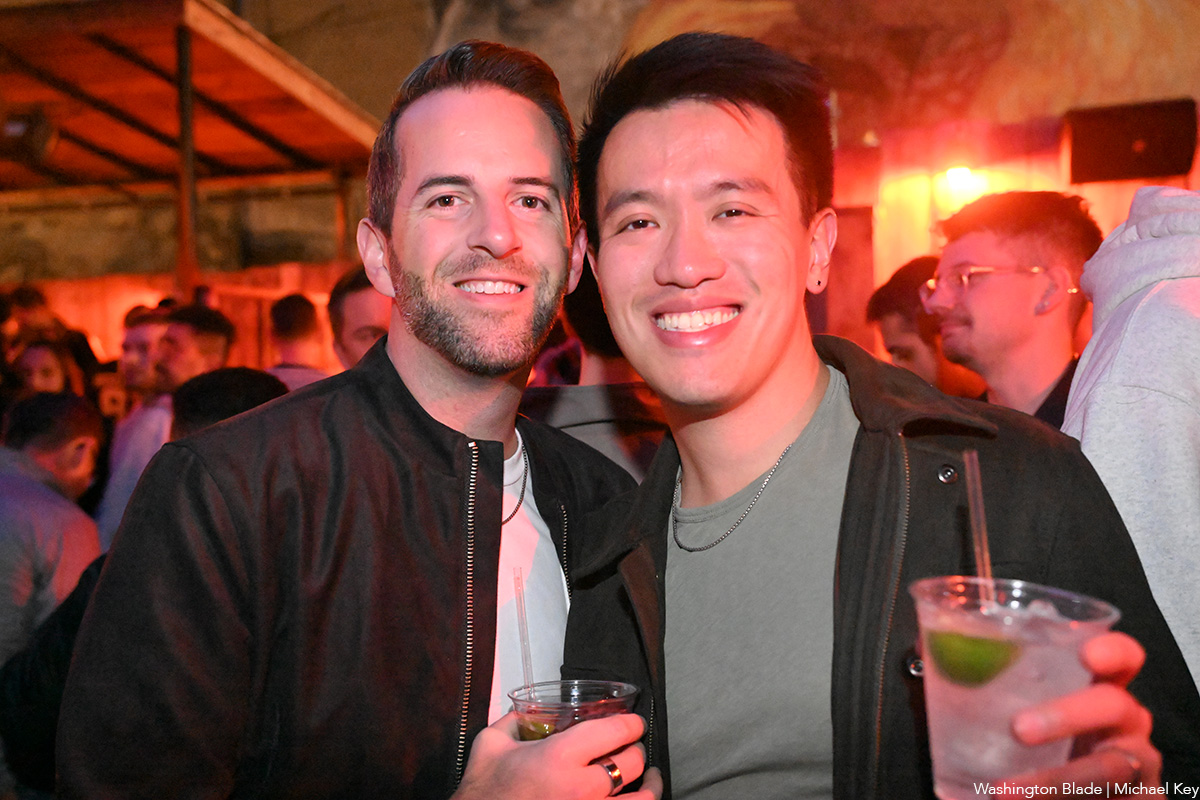


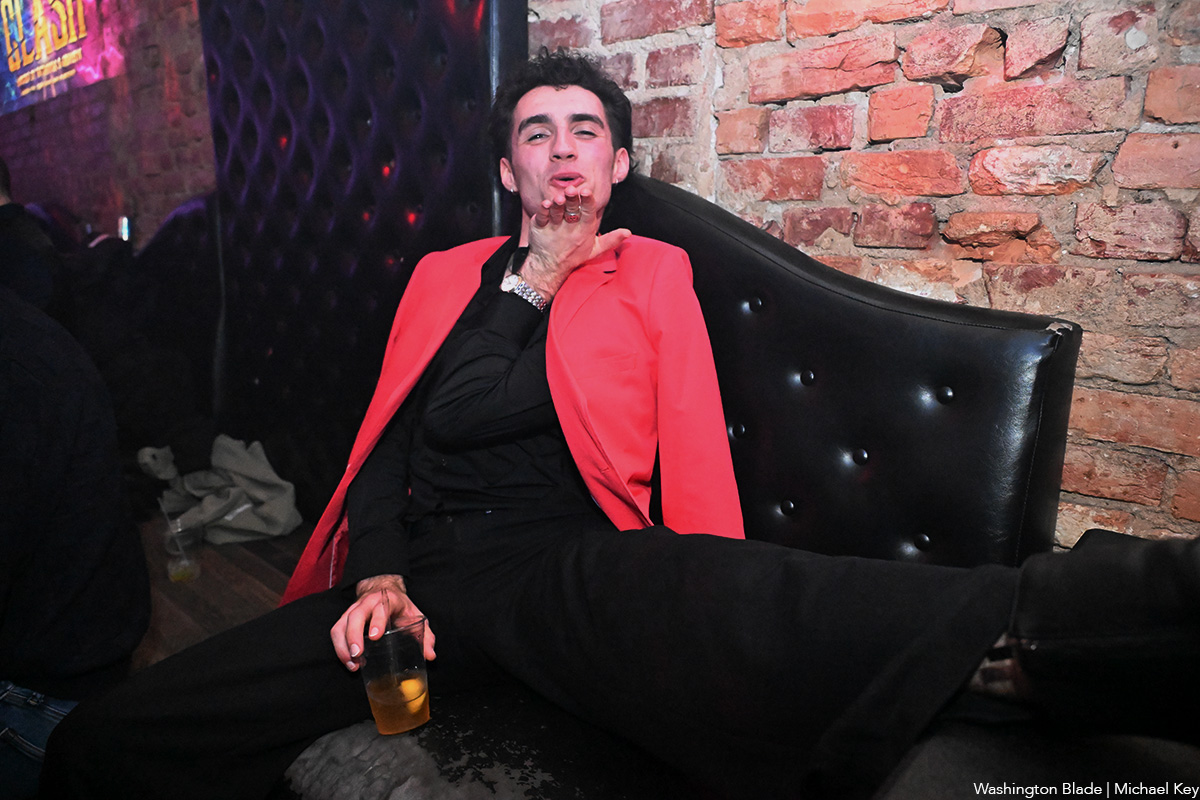

Theater
Magic is happening for Round House’s out stage manager
Carrie Edick talks long hours, intricacies of ‘Nothing Up My Sleeve’

‘Nothing Up My Sleeve’
Through March 15
Round House Theatre
4545 East-West Highway
Bethesda, Md. 20814
Tickets start at $50
Roundhousetheatre.org
Magic is happening for out stage manager Carrie Edick.
Working on Round House Theatre’s production of “Nothing Up My Sleeve,” Edick quickly learned the ways of magicians, their tricks, and all about the code of honor among those who are privy to their secrets.
The trick-filled, one-man show starring master illusionist Dendy and staged by celebrated director Aaron Posner, is part exciting magic act and part deeply personal journey. The new work promises “captivating storytelling, audience interaction, jaw-dropping tricks, and mind-bending surprises.”
Early in rehearsals, there was talk of signing a non-disclosure agreement (NDA) for production assistants. It didn’t happen, and it wasn’t necessary, explains Edick, 26. “By not having an NDA, Dendy shows a lot of trust in us, and that makes me want to keep the secrets even more.
“Magic is Dendy’s livelihood. He’s sharing a lot and trusting a lot; in return we do the best we can to support him and a large part of that includes keeping his secrets.”
As a production assistant (think assistant stage manager), Edick strives to make things move as smoothly as possible. While she acknowledges perfection is impossible and theater is about storytelling, her pursuit of exactness involves countless checklists and triple checks, again and again. Six day weeks and long hours are common. Stage managers are the first to arrive and last to leave.
This season has been a lot about learning, adds Edick. With “The Inheritance” at Round House (a 22-week long contract), she learned how to do a show in rep which meant changing from Part One to Part Two very quickly; “In Clay” at Signature Theatre introduced her to pottery; and now with “Nothing Up My Sleeve,” she’s undergoing a crash course in magic.
She compares her career to a never-ending education: “Stage managers possess a broad skillset and that makes us that much more malleable and ready to attack the next project. With some productions it hurts my heart a little bit to let it go, but usually I’m ready for something new.”
For Edick, theater is community. (Growing up in Maryland, she was a shy kid whose parents signed her up for theater classes.) Now that community is the DMV theater scene and she considers Round House her artistic home. It’s where she works in different capacities, and it’s the venue in which she and actor/playwright Olivia Luzquinos chose to be married in 2024.
Edick came out in middle school around the time of her bat mitzvah. It’s also around the same time she began stage managing. Throughout high school she was the resident stage manager for student productions, and also successfully participated in county and statewide stage management competitions which led to a scholarship at the University of Maryland, Baltimore County (UMBC) where she focused on technical theater studies.
Edick has always been clear about what she wants. At an early age she mapped out a theater trajectory. Her first professional gig was “Tuesdays with Morrie” at Theatre J in 2021. She’s worked consistently ever since.
Stage managing pays the bills but her resume also includes directing and intimacy choreography (a creative and technical process for creating physical and emotional intimacy on stage). She names Pulitzer Prize winning lesbian playwright Paula Vogel among her favorite artists, and places intimacy choreographing Vogel’s “How I learned to Drive” high on the artistic bucket list.
“To me that play is heightened art that has to do with a lot of triggering content that can be made very beautiful while being built to make you feel uncomfortable; it’s what I love about theater.”
For now, “Nothing Up My Sleeve” keeps Edick more than busy: “For one magic trick, we have to set up 100 needles.”
Ultimately, she says “For stage managers, the show should stay the same each night. What changes are audiences and the energy they bring.”
-

 Theater5 days ago
Theater5 days agoMagic is happening for Round House’s out stage manager
-

 Baltimore3 days ago
Baltimore3 days ago‘Heated Rivalry’ fandom exposes LGBTQ divide in Baltimore
-

 Real Estate3 days ago
Real Estate3 days agoHome is where the heart is
-

 District of Columbia3 days ago
District of Columbia3 days agoDeon Jones speaks about D.C. Department of Corrections bias lawsuit settlement

